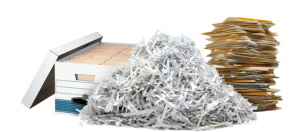 My Top 5 Tips are simple:
My Top 5 Tips are simple:
- Keep your copies of your tax returns FOREVER. Yes, every year that you filed. You never know when you (or your heirs) will need to look back.
- The Internal Revenue Service has THREE YEARS time to examine your tax records. This is called the Statute of Limitations for examination or audit. This 3-year clock runs from the date your tax return was filed, or the date your return was due, whichever is later. …. If you filed your tax return on February 14th, and it wasn’t due until April 15th, the later of the two dates is April 15th. If your tax return was due on April 15th, but you didn’t file your return until August 15th (it may have been on extension so you avoided late-filing penalties) the 3-year “statute” clock doesn’t start running until August 15th, the later of the two dates.
- Your state has MORE time. Arizona has One more year. California has TWO more years. Which state are you in? How much longer do they have to look at your tax records? … We are just finishing 2014. We will file the 2014 tax returns in calendar year 2015. Three years from 2015 is 2018. Four years from 2015 is 2019. But the records are from 2014. And the 2019 is FIVE years later than 2014.
- So how long must you keep your records? For calendar-year tax return items, you need to keep your records AT LEAST five years. But some records need to be kept even longer. … Take a deep breath. It’s not too difficult to understand. And it is not too difficult to do. Keep cancelled checks and paperwork related to stocks, or other investments you buy and sell, until 5 years after the date of sale. Keep documents related to the purchase, improvement, refinance of your home and other real property, until 5 years after the sale of each property.
- Don’t be in too big a hurry to get rid of the paperwork. Keep the original documents. Scan them. Technology is great, but things change over time and anything can fail. Don’t just toss or recycle sensitive information. Use a cross-cut shredder to really destroy the no-longer needed documents. .. Debbye Cannon of SmartCut Solutions shared an easy way to corral the clutter. She recommended using a plastic multi-drawer cabinet you can find in any office supply store.
0
